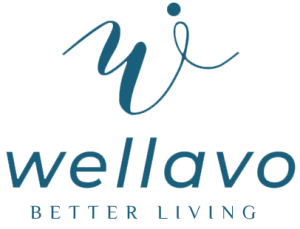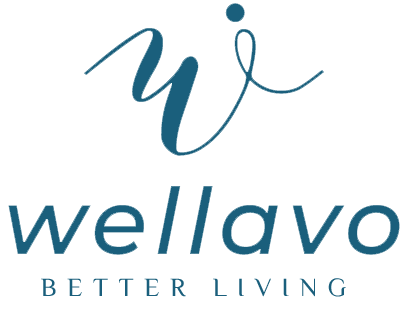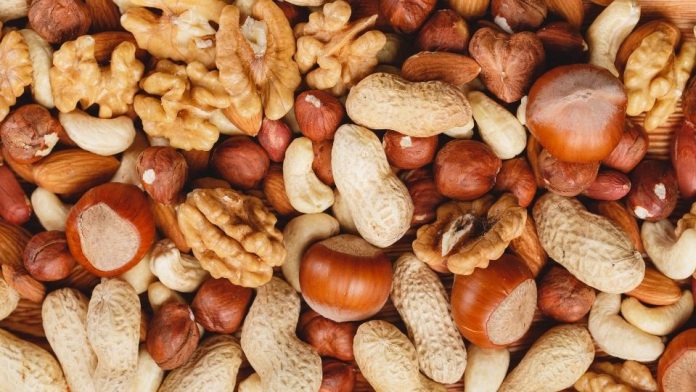Nuts are a great source of plant-based protein and healthy fats. Additionally, it also provides vitamins, minerals, phytochemicals, and antioxidants. Nuts maintain optimum health. One serving (30 g or ¼ cup) of nuts provides about 3-6 grams of protein. However, if your goal to get more protein, we usually recommend increasing the intake of legumes.
Nuts strengthen the brain, heart, and muscles. They boost cognitive function, reduces oxidative stress, provides energy, and prevents diseases.
You should include a variety of nuts in your daily diet. Almonds and walnuts are especially important because both nuts have a greater antioxidant capacity and contain the healthiest fats. Walnuts also contain omega-3 fatty acids.
Key Recommendation
- Preference: Give preference to walnuts and almonds. These should be a part of your daily diet. Walnuts are more important than almonds if you need to choose one from two.
- Alternate: Except almonds and walnuts, alternate all other nuts. Do not consume the same nuts daily.
- Soak: Soak all types of nuts for about 8 hours before eating. You can also soak nuts overnight.
Recommended Nut Ratio
Recommended Nuts Servings
Nuts are not an important part of the whole food plant-based diet. It just provides additional support to people who have high energy and calorie needs.
Standard Serving Size for Nuts
| Soaked Nuts | 30 grams (¼ cup) |
| Nut Butter (homemade) | 2 tablespoons |
Recommended Daily Amount
The recommended daily amount depends on your health status. We divide our recommendation into four groups:
- Group 1 (Acne, Obese & Heart Disease): If you are obese or suffer from acne or cardiovascular disease, you should consider the recommendation given under Group 1.
- Group 2 (Sedentary Lifestyle): Healthy people living a sedentary lifestyle and doing sitting jobs.
- Group 3 (Physically Active): Children, pregnant women, lactating mothers, physically active people doing exercise at least 30 minutes a day.
- Group 4 (Athletes and sportspeople): Athletes and sportspeople.
Group 1: Acne, Obese & Heart Disease
| Age Group | Recommended Daily Servings |
| 12-18 | ¼ serving (7.5 grams) |
| 19-50 | ¼ serving (7.5 grams) |
| 51-70 | NIL |
| 70+ | NIL |
The above recommendation is for obese people (trying to lose weight) and people who suffer from skin diseases (especially acne) or cardiovascular diseases.
Group 2: Sedentary Lifestyle
| Age Group | Recommended Daily Servings |
| 19-50 | ½ serving (15 grams) |
| 51-70 | 1/3 serving (10 grams) |
| 70+ | ¼ serving (7.5 grams) |
The above recommendation is for healthy people living a sedentary life.
Group 3: Physical Active
| Age Group | Recommended Daily Servings |
| 1-2 | ¼ serving (7.5 grams) |
| 2-3 | 1/3 serving (10 grams) |
| 4-8 | ½ serving (15 grams) |
| 9-11 | ¾ serving (22.5 grams) |
| 12-13 | 1 serving (30 grams) |
| 14-18 | 1 ½ serving (45 grams) |
| 19-50 | 1 serving (30 grams) |
| 51-70 | ¾ serving (22.5 grams) |
| 70+ | ½ serving (15 grams) |
| Pregnant | 1 ½ serving (45 grams) |
| Lactating | 1 ½ serving (45 grams) |
The above recommendation is for children, pregnant women, lactating mothers, and people exercising for 30-60 minutes a day.
Group 4: Athletes & Sportspeople
| Age Group | Recommended Servings per day |
| 4-8 | ¾ serving (22.5 grams) |
| 9-11 | 1 serving (30 grams) |
| 12-13 | 1 ½ serving (45 grams) |
| 15-18 | 2 servings (60 grams) |
| 19-50 | 1 ½ serving (45 grams) |
| 51-70 | ¾ serving (22.5 grams) |
| 70+ | ½ serving (15 grams) |
This recommendation is for athletes, sportspeople and physically active people doing exercise for more than 60 minutes a day.
Appropriate Amount
The amount also depends on your digestive capacity. Your appetite and digestive capacity matter more than the recommended amount. You can eat less or more according to your appetite and digestive capacity. The appropriate amount is the amount that does not affect the intake of other food groups, and you easily digest the amount without facing any trouble or loss of appetite for the next mealtime.
Nut Milk
Soya and nuts are major sources of plant-based milk. You should check the ingredients of nut milk. Generally, plant-based nut milk contains 2.5% of nuts (e.g., 2.5% of almonds in almond milk). You should count it toward your daily recommended nut amount.
We promote simplicity and negligible or minimum processing. Commercial nut milk contains unwanted ingredients. Making nut milk at home is a time-consuming process. Therefore, it could be best to eat soaked nuts. Be simple and have more time for other activities.


